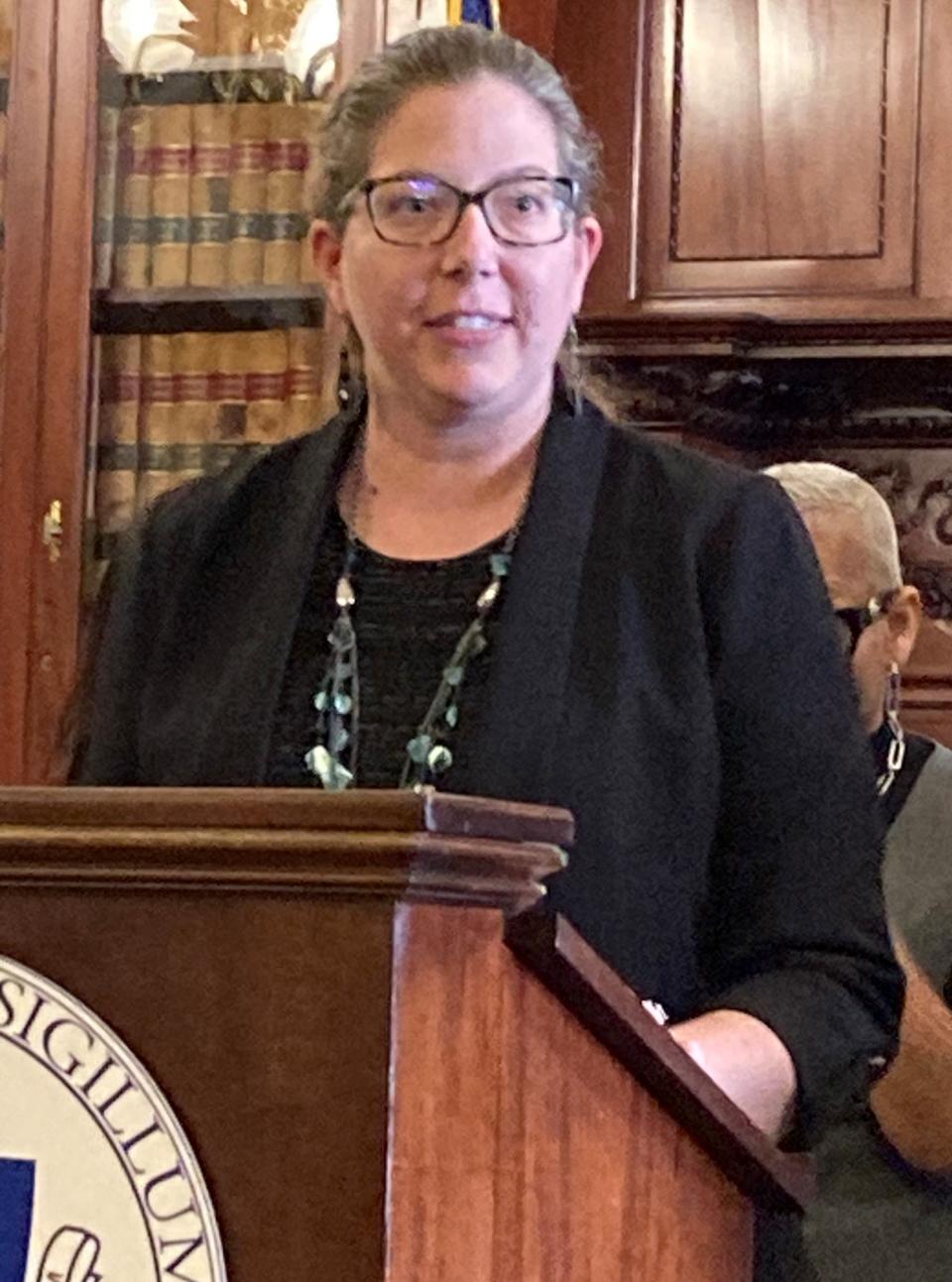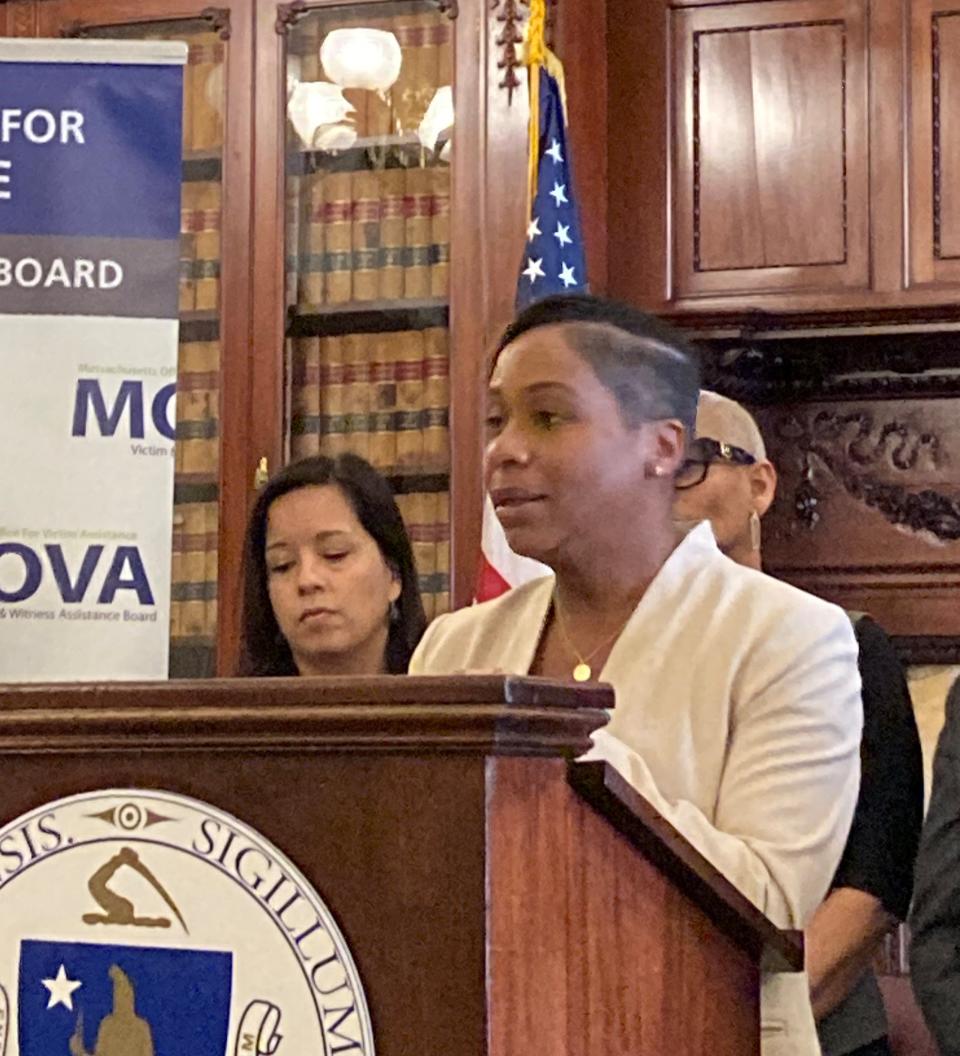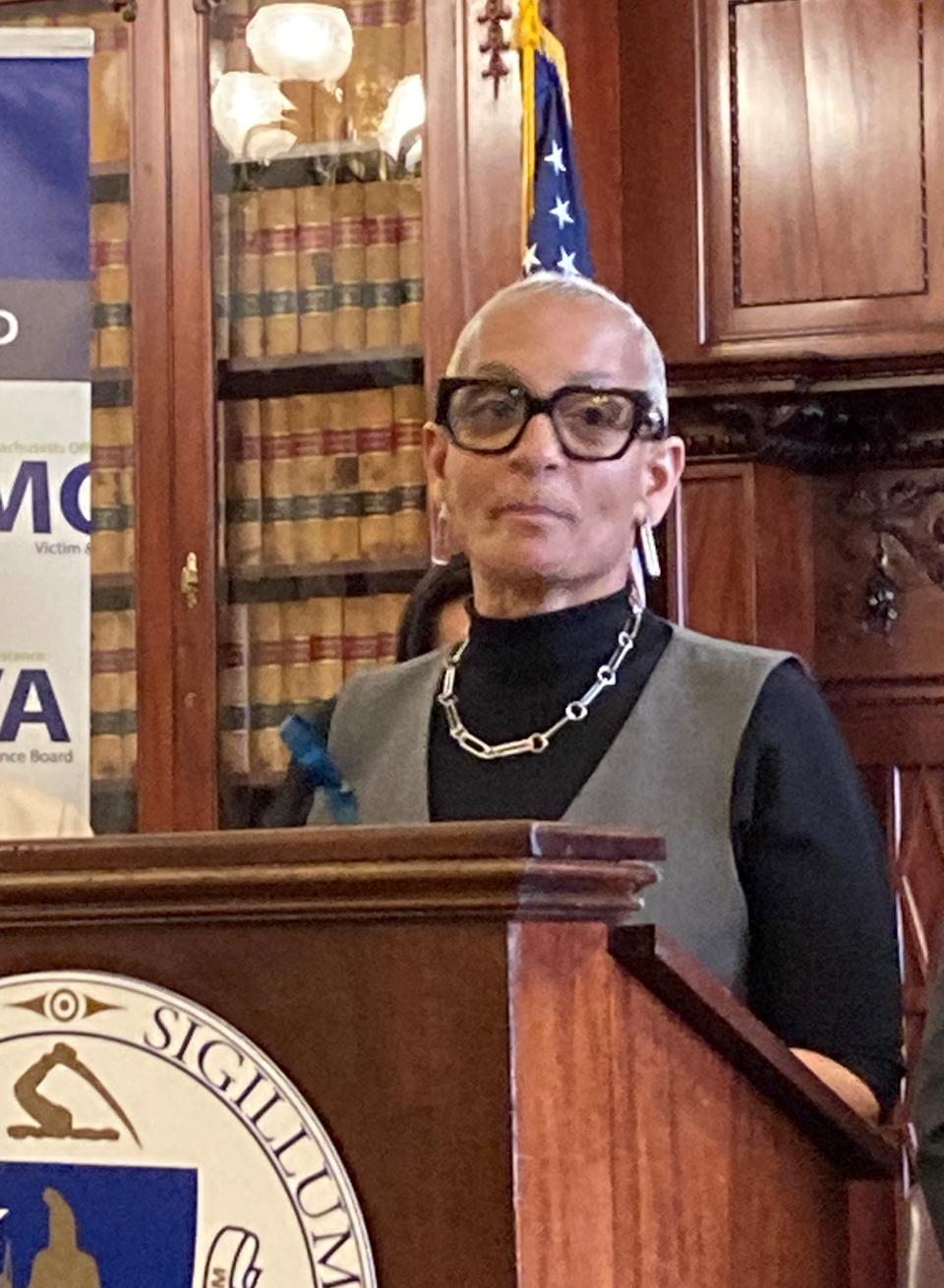State legislators, advocates urge $20M bridge funding for crime victim support groups
- Oops!Something went wrong.Please try again later.
BOSTON — The chant went around the room several times and was repeated by each speaker: $20 million. That’s the amount needed to continue full funding of the Massachusetts Office for Victim Assistance, the victim and witness advocacy board.

People whose lives have been touched by crime, from the tourist who has their wallet stolen in Harvard Square to the survivor of commercial sex trafficking, can turn to the agencies funded through MOVA for support. The umbrella organization collects federal dollars and then distributes the money to different agencies, community and grassroots organizations throughout Massachusetts. These offer financial, emotional and physical support to the targeted individuals that allows them to work toward overcoming the trauma of being victimized.
The problem, said Liam Lowney, executive director of MOVA, is the decline in federal funding. The federal Victim of Crimes Act generates revenues from monetary penalties associated with federal crime convictions. These are then distributed to states nationwide.
In Massachusetts, MOVA distributes the funds. The decline started pre-pandemic and continues unabated, Lowney said. When the state learned it would lose $60 million in federal dollars, the Legislature pledged to make up the difference and has been doing so, $20 million at a time.
This last Tuesday would supply the “bridge” funding needed to ensure the level of service does not decline and that providers like On The Rise in Cambridge, offering a day program and support services for homeless women and transgender/nonbinary people, to the YWCA in Worcester, offering supports for survivors of domestic violence and sexual assault, won’t have to cut services or staff.
“Budgets are value documents that prioritize what matters, what is important to the state,” said Sen. Robyn Kennedy, D-Worcester, promising to continue advocating for the funding. “It’s too important. Too many survivors are counting on the help; children, elders, sexual assault survivors. They all need services.”

Rep. Natalie Higgins, D-Leominster, is urging her colleagues to make the funding commitment as soon as possible.
Higgins, who had been trained as a rape crisis counselor while attending the University of Massachusetts at Amherst and worked at Pathways for Change in Worcester, was unprepared for the number of people who would disclose their experiences with sexual violence after learning of her training.
“They knew I would sit with them, believe them,” Higgins said. She turned to the organization after being assaulted. “I knew, because of my training, that what had happened to me was wrong.” She was able to take the next steps but not everyone is “that strong. The laws have to be better.”
MOVA serviced 95,000 people in 2023, the largest number ever, Lowney said. Of those, 33,000 people were able to access services thanks to the “VOCA bridge,” the funds pledged to the agency by legislators to make up for the federal shortfall. Without the boost, those people would not have been able to access services.
And Rep. Marjorie Decker, D-Cambridge, pointed out that not all those who were entitled to access support were served due to the lack of adequate funding.
“Congress failed all of us, in Massachusetts and across the country, when the funding for VOCA was not renewed,” Decker said.
The funds pay for children’s advocacy centers and programs ranging from sexual assault, domestic violence, homicide bereavement, elder abuse services and legal assistance programs. Funding also supports training for providers and services extended to traditionally marginalized and underserved crime victims who may also suffer from systemic racism, sexism and poverty.

MOVA celebrates its 40th anniversary this year.
“This support empowers victims,” said Attorney General Andrea Campbell as she marked the start of Victim Rights Month. The support allows victims to heal, to protect themselves and to contribute to the legal process.
Attending the legislative briefing Tuesday were advocates with lived experience including Audrey Morrissey, co-executive director of My Life My Choice, a Boston-based organization that supports survivors of commercial sex trafficking and helps those who wish to exit the trade to leave "the life." She was recently named to the board of MOVA, one of several new board members appointed who can shared their lived experience with colleagues.
While she was on the street on the city’s former Combat Zone, the commercial sex trade has gone underground and is posted online with business conducted in hotel rooms.

“There are so many children brought into the commercial sex industry,” Morrissey said, adding that her organization has a waitlist of survivors seeking services.
She assured legislators that the funding supplied by the state was “well-spent. People look to us (in Boston); we are the leaders,” Morrissey said. The group serves clients as far west as Worcester, throughout Greater Boston and along the Eastern Seaboard.
This article originally appeared on Telegram & Gazette: Massachusetts legislators push for $20M to cover aid for crime victims

